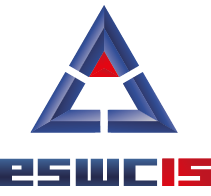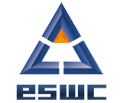Accepted Papers
Research Track
- Robert Meusel and Heiko Paulheim. Heuristics for Fixing Common Errors in Deployed schema.org Microdata
- Gerhard Wohlgenannt. Leveraging and Balancing Heterogeneous Sources of Evidence in Ontology Learning
- Achim Rettinger, Artem Schumilin, Steffen Thoma and Basil Ell. Learning a Cross-Lingual Semantic Representation of Relations Expressed in Text
- Ruslan Mavlyutov, Marcin Wylot and Philippe Cudré-Mauroux. A Comparison of Data Structures to Manage URIs on the Web of Data
- Dilshod Ibragimov, Katja Hose, Torben Bach Pedersen and Esteban Zimanyi. Processing Aggregate Queries in a Federation of SPARQL Endpoints
- José M. Giménez-Garcia, Javier D. Fernández and Miguel A. Martinez-Prieto. HDT-MR: A Scalable Solution for RDF Compression with HDT and MapReduce
- Martin Peters, Sabine Sachweh and Albert Zündorf. Large scale rule-based Reasoning using a Laptop
- Mayank Kejriwal and Daniel P. Miranker. Semi-supervised Instance Matching Using Boosted Classifiers
- Joachim Van Herwegen, Ruben Verborgh, Erik Mannens and Rik Van de Walle. Query Execution Optimization for Clients of Triple Pattern Fragments
- Sebastian Käbisch, Daniel Peintner and Darko Anicic. Standardized and Efficient RDF Encoding for Constrained Embedded Networks
- Laurens Rietveld, Ruben Verborgh, Wouter Beek, Miel Vander Sande and Stefan Schlobach. Data as a Service: The Semantic Web Redeployed
- Christoph Pinkel, Carsten Binnig, Ernesto Jiménez-Ruiz, Wolfgang May, Dominique Ritze, Martin G. Skjaeveland, Alessandro Solimando and Evgeny Kharlamov. RODI: A Benchmark for Relational-to-Ontology Data Integration
- Xiaoqi Cao, Patrick Kapahnke and Matthias Klusch. SPSC: Efficient Composition of Semantic Services in Unstructured P2P Networks
- Kjetil Kjernsmo. A survey of HTTP caching implementations on the open Semantic Web
- Revathy Krishnamurthy, Pavan Kapanipathi, Amit Sheth and Krishnaprasad Thirunarayan. Knowledge Enabled Approach to Predict the Location of Twitter Users
- Mohamed Ahmed Sherif, Axel-Cyrille Ngonga Ngomo and Jens Lehmann. Automating RDF Dataset Transformation and Enrichment
- Ramnandan Krishnamurthy, Amol Mittal, Craig Knoblock and Pedro Szekely. Assigning Semantic Labels to Data Sources
- Fadi Maali, Stéphane Campinas and Stefan Decker. Gagg: A Graph Aggregation Operator
- Pierre-Edouard Portier, Mazen Alsarem, Sylvie Calabretto and Harald Kosch. Ranking Entities in the Age of Two Webs, An Application to Semantic Snippets
- Jeremy Debattista, Santiago Londoño, Christoph Lange and Sören Auer. Quality Assessment of Linked Datasets using Probabilistic Approximations
- Olaf Hartig and Giuseppe Pirrò. A Context-Based Semantics for SPARQL Property Paths over the Web
- Oluwaseyi Feyisetan, Markus Luczak-Roesch, Elena Simperl and Ramine Tinati. Towards hybrid NER: a study of content and crowdsourcing-related performance factors
- Valentina Ivanova, Patrick Lambrix and Johan Åberg. Requirements for and Evaluation of User Support for Large-Scale Ontology Alignment
- Hamid R. Bazoobandi, Steven De Rooij, Jacopo Urbani, Annette Ten Teije, Frank Van Harmelen and Henri Bal. A Compact In-Memory Dictionary for RDF data
- Ricardo Usbeck, Axel-Cyrille Ngonga Ngomo, Lorenz Bühmann and Christina Unger. HAWK – Hybrid Question Answering using Linked Data
- Armando Stellato, Sachit Rajbhandari, Andrea Turbati, Manuel Fiorelli, Caterina Caracciolo, Johannes Keizer and Maria Teresa Pazienza. VocBench: a Web Application for Collaborative Development of Multilingual Thesauri
- Manuel Fiorelli, Armando Stellato, John P. Mccrae, Philipp Cimiano and Maria Teresa Pazienza. LIME: the Metadata Module for OntoLex
- Géraud Fokou, Stephane Jean, Allel Hadjali and Mickael Baron. Cooperative Techniques for SPARQL Query Relaxation in RDF Databases
- Georgia Troullinou, Haridimos Kondylakis, Evangelia Daskalaki and Dimitris Plexousakis. RDF Digest: Efficient Summarization of RDF/S KBs
- Jacobo Rouces, Gerard de Melo and Katja Hose. FrameBase: Representing N-ary Relations using Semantic Frames
- Raghava Mutharaju, Pascal Hitzler, Prabhaker Mateti and Freddy Lecue. Distributed and Scalable OWL EL Reasoning
- Giuseppe Rizzo, Claudia D'Amato, Nicola Fanizzi and Floriana Esposito. Inductive Classification through Evidence-based Models and their Ensembles
- Genevieve Gorrell, Johann Petrak and Kalina Bontcheva. LOD-based Disambiguation of Named Entities in @tweets through Context #enrichment
In-Use Track
- Dhavalkumar Thakker, Vania Dimitrova, Anthony Cohn and Joaquin Valdes. PADTUN - Using Semantic Technologies in Tunnel Diagnosis and Maintenance Domain
- Panos Alexopoulos, Ronald Denaux and Jose Manuel Gomez-Perez. Troubleshooting and Optimizing Named Entity Resolution Systems in the Industry
- Dmitry Muromtsev, Peter Haase, Dmitry Pavlov, Eugene Cherny, Alexey Andreev and Anna Spiridonova. Towards the Linked Russian Heritage Cloud: Data enrichment and Publishing
- Heiner Oberkampf, Turan Gojayev, Sonja Zillner, Dietlind Zühlke, Sören Auer and Matthias Hammon. From Symptoms to Diseases -- Creating the Missing Link
- Chun Lu, Milan Stankovic and Philippe Laublet. Desperately searching for travel offers? Formulate better queries with some help from Linked Data.
- Harry Halpin and Francesca Bria. Crowdmapping Digital Social Innovation with Linked data
- Mauro Dragoni, Chiara Ghidini, Paolo Busetta, Mauro Fruet and Matteo Pedrotti. Using Ontologies For Modeling Virtual Reality Scenarios
- Maximilan Osenberg, Melanie Langermeier and Bernhard Bauer. Using semantic web technologies for enterprise architecture analysis
- Yolanda Gil, Felix Michel, Varun Ratnakar, Paul Hanson, Hilary Dugan, Jordan Read, Christopher Duffy and Matheus Hauder. Supporting Open Collaboration in Science through Explicit and Linked Semantic Description of Processes







